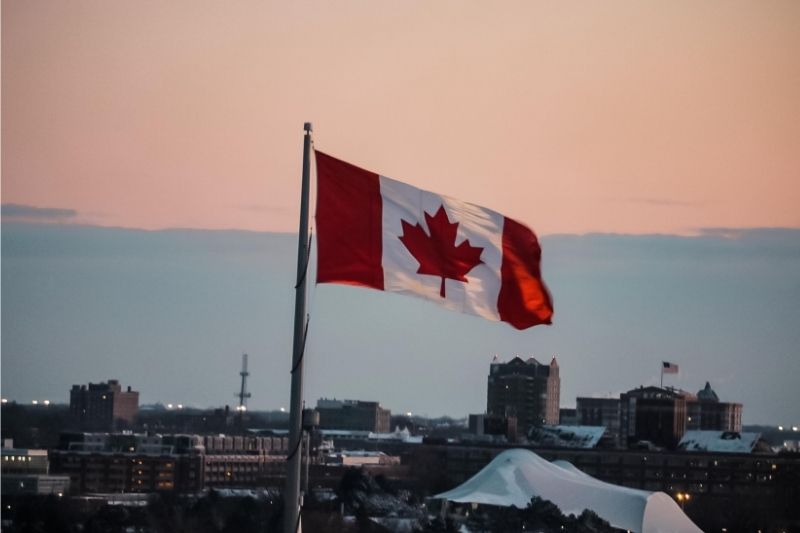No products in the cart.
Everything To Know To Be Able To Enter Canada

Canada is an extremely popular travel destination, located in North America. There are lots of attractions, landmarks, and historical locations worth seeing there. Because of the COVID-19 pandemic, Canada has been closed to foreign travellers for some time now. Thankfully, travel is again permitted to the nation.
Before you travel to Canada, it’s important that you do your research and find out exactly what the country’s entry guidelines are. If you fall afoul of them, you may not be allowed in.
Here is everything that you need to know to be able to enter Canada in 2022:
Express Entry System
If you are hoping to immigrate to Canada, then you need to know about the country’s express entry system. This system was introduced by the IRCC (Immigration, Refugees, and Citizenship Canada) and is used to determine a candidate’s suitability for immigration. If you are hoping to apply for the country’s Federal Skilled Worker Class, Canadian Experience Class, or Federal Skilled Trades Class, then you will need to do so through Canada’s express entry system, which is a very straightforward process. The system is a fast-tracked immigration system, making it easier for immigrants to settle in the country.
Vaccination Status
Your entry into Canada hinges on your vaccination status. At this time, unqualified unvaccinated travelers are unable to enter. Only qualified travelers (citizens) are permitted entry without vaccination. Vaccinated travelers can enter Canada, as long as they meet the following conditions:
- The traveler must be fully vaccinated and must be able to show proof of their full series of vaccinations.
- They must have received an approved vaccine. Those vaccines are currently Pfizer-BioNTech, AstraZeneca/COVISHIELD, Moderna, Janssen, COVAXIN, Sinovac, and Sinopharm.
- A valid, pre-arrival COVID-19 molecular test must be presented upon arrival. This test must have been taken no more than 72 hours prior to the person’s flight or arrival at a land border crossing.
- The traveler must not under any circumstances show any symptoms of COVID-19.
- The traveler must submit mandatory information via ArriveCAN and arrange a quarantine plan if they do not meet the country’s necessary requirements.
Without a valid vaccine certificate and test result, entry to Canada may be denied. If one is traveling from a country where molecular testing is not possible, then a mandatory 14-day quarantine will be enforced.
Arrival Testing
You should also be aware that random testing can be conducted on fully vaccinated travelers if the border officials decide this to be so. When arrival testing is conducted, the person must quarantine until they receive their negative test result. They are allowed to take public transport to their place of quarantine. If the test returns positive, then 14 days of self-isolation will be expected.
Self-Isolation Plan
The Canadian government expects all travelers to have a self-isolation plan in place, in case they do test positive upon arrival. If a person were to arrive without a plan, then they may be forced to stay in a government-arranged self-isolation facility. It is important that one’s plan meets the country’s self-isolation requirements. For example, if one’s plan involved staying with elderly relatives, then one’s plan would be deemed unsuitable. If you do not have a suitable self-isolation plan in place then mention this to the border officials or government representative that handles your testing.
Unvaccinated Travellers
As mentioned previously, qualified unvaccinated travelers can enter Canada, but this is only by right. This includes permanent residents, Canadian citizens, and their immediate families, temporary workers, and international students. In order to gain entry as an unvaccinated traveler, one must present a valid COVID-19 molecular test, taken no more than 72 hours before a person’s flight, have no COVID symptoms, and have a quarantine plan in place. A test must be taken upon arrival, and one must then self-isolate for 14 days regardless of the test’s outcome.
If you do not isolate, heavy penalties can be imposed. You need to make sure that your quarantine plan is suitable and does not involve staying with elderly people. If your plan is deemed unsuitable, you may have to stay in a government-run quarantine facility. If you do not have a valid test result, you will be denied boarding or entry into the nation.
You will also be expected to wear a mask or face covering until you arrive at your quarantine place, and while on the plane. Even if you test negative and are vaccinated, it is still good practice to wear your mask in public. This can protect you and other people.
Canada is an amazing, diverse country that’s well worth visiting. If you are going to immigrate or just travel to explore, make sure that you follow the country’s COVID restrictions. If you break them, you can get into a lot of trouble.















Leave a Reply